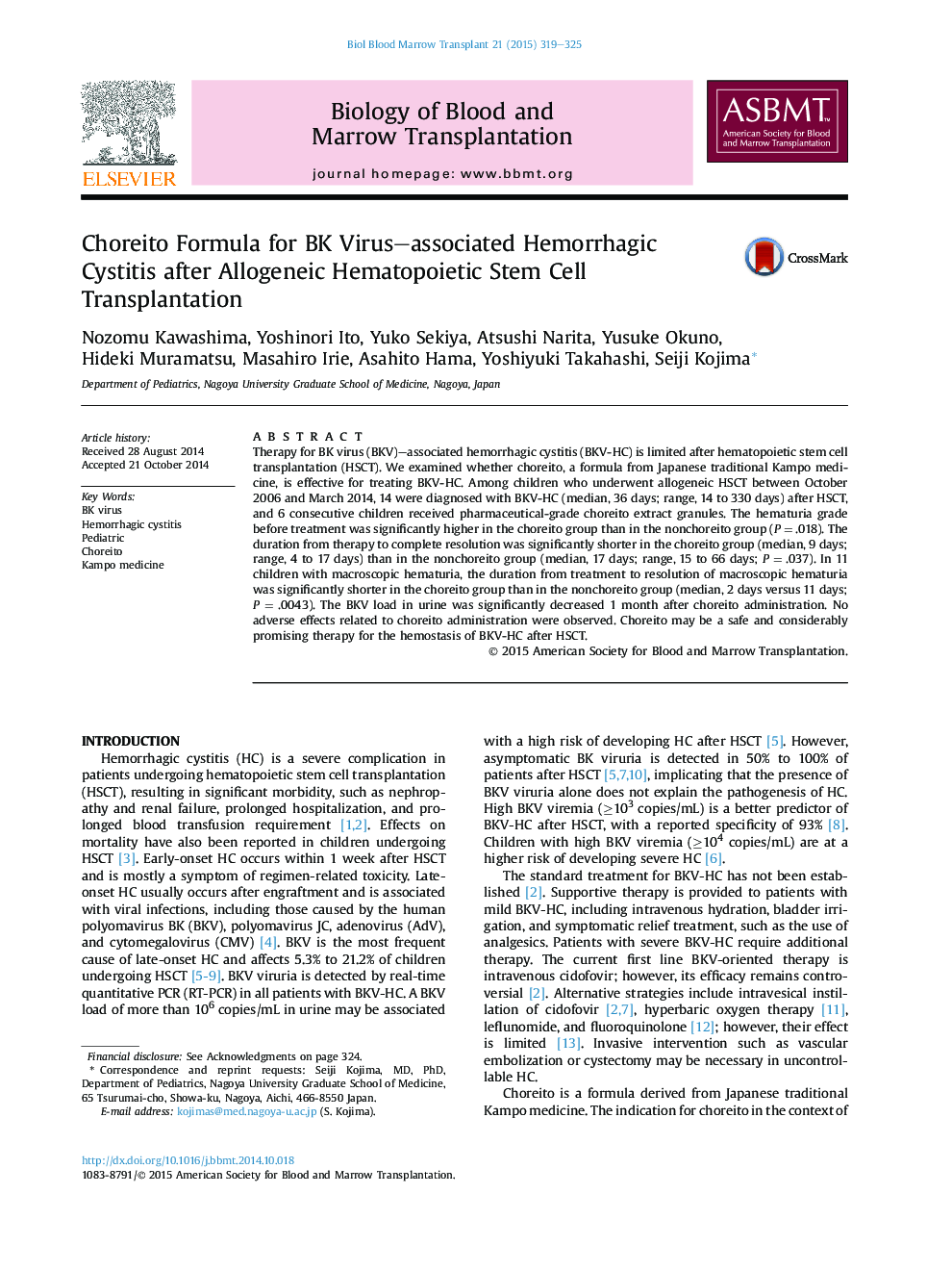| Article ID | Journal | Published Year | Pages | File Type |
|---|---|---|---|---|
| 2102982 | Biology of Blood and Marrow Transplantation | 2015 | 7 Pages |
•We examined whether choreito is effective for treating BK virus hemorrhagic cystitis.•The duration to complete resolution was significantly shorter in the choreito group.•The resolution of macroscopic hematuria was shorter in the choreito group.•The BK virus load in urine was significantly decreased after choreito administration.•No adverse effects of choreito were observed.
Therapy for BK virus (BKV)–associated hemorrhagic cystitis (BKV-HC) is limited after hematopoietic stem cell transplantation (HSCT). We examined whether choreito, a formula from Japanese traditional Kampo medicine, is effective for treating BKV-HC. Among children who underwent allogeneic HSCT between October 2006 and March 2014, 14 were diagnosed with BKV-HC (median, 36 days; range, 14 to 330 days) after HSCT, and 6 consecutive children received pharmaceutical-grade choreito extract granules. The hematuria grade before treatment was significantly higher in the choreito group than in the nonchoreito group (P = .018). The duration from therapy to complete resolution was significantly shorter in the choreito group (median, 9 days; range, 4 to 17 days) than in the nonchoreito group (median, 17 days; range, 15 to 66 days; P = .037). In 11 children with macroscopic hematuria, the duration from treatment to resolution of macroscopic hematuria was significantly shorter in the choreito group than in the nonchoreito group (median, 2 days versus 11 days; P = .0043). The BKV load in urine was significantly decreased 1 month after choreito administration. No adverse effects related to choreito administration were observed. Choreito may be a safe and considerably promising therapy for the hemostasis of BKV-HC after HSCT.
